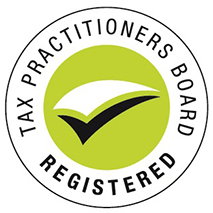How to grow your super before retirement

A super balance of $1 million is often presented as the magic number for a comfortable retirement. But most experts say it depends on your lifestyle and retirement expectations. Variables include whether you own your own home outright, your health and dependents who need or may need your financial assistance. The size of your retirement nest egg will be determined by your individual goals and circumstances. But there are a number of practical strategies you can use to boost your super before retirement:
-
Delaying retirement : For the 2024-25 financial year, employers are required to contribute 11.5% of your salary to your super account. This is known as the superannuation guarantee (SG) contribution. Postponing retirement, to work a little longer, or continuing to work at reduced hours, can help with financial security by receiving further employer contributions to your superannuation.
-
Consider salary sacrificing : Salary sacrificing can be an effective strategy to boost your superannuation savings. It allows you to arrange with your employer to make additional before-tax contributions to your super account, which are taxed at a flat rate of 15%. These contributions are included in the concessional (before-tax) contribution cap, which is currently set at $30,000 per annum and includes employer contributions such as superannuation guarantee contributions, as well as personal contributions for which you claim a tax deduction.
-
Make after-tax contributions: After-tax contributions can be an effective way to boost your super. These contributions are made from your after-tax income and are included in the non-concessional (after-tax) contributions cap. The current cap is $120,000 per annum. You may be able to bring forward up to three years of after-tax contributions, depending on your total super balance and age.
-
Spouse contributions: If your spouse is a low income earner (earning up to $40,000 per year), you can make super contributions on their behalf and claim a tax offset of up to $540 per annum. This tax offset is calculated as 18% of the contributions made. To be eligible, you must be married or in a de facto relationship with your partner and both of you must be Australian residents.
-
Government co-contribution: If you earn less than $60,400 per year and make after-tax super contributions, you may be eligible for a government co-contribution of up to $500 per year. This co-contribution is paid directly into your super account after you've lodged your tax return for the year.
Using these strategies can help you maximise your super and retire comfortably. However, as a general starting point, you can use the Money Smart calculator to work out:
-
How long your account-based pension will last?
-
How investment returns will affect your pension balance?
Source: Perpetual













